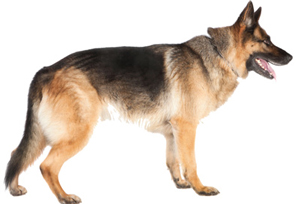Early neutering triples risk of joint disorders in German Shepherd Dogs
A new study finds that neutering German Shepherd Dogs before 1 year of age triples the risk of the dogs developing one or more joint disorders.

Lead investigator Dr. Benjamin Hart and other researchers from the University of California-Davis published “Neutering of German Shepherd Dogs: associated joint disorders, cancers and urinary incontinence” online May 16 ahead of print in Veterinary Medicine and Science.
The researchers examined records over a 14 1/2-year period on 1,170 sexually intact or neutered German Shepherd Dogs for joint disorders and cancers that have been associated with neutering. The dogs were followed for diseases through 8 years of age, with the exception that female dogs were followed for mammary cancer through 11 years of age.
One or more joint disorders were diagnosed in 7 percent of sexually intact males, compared with 21 percent of males that had been neutered prior to 1 year of age. In sexually intact females, 5 percent had one or more joint disorders; whereas in females that were neutered prior to 1 year of age, this measure was significantly increased to 16 percent.
Mammary cancer was diagnosed in 4 percent of sexually intact females, compared with less than 1 percent of females neutered before 1 year of age. Urinary incontinence, not diagnosed in sexually intact females, was diagnosed in 7 percent of females neutered before 1 year of age.
The study is available here.
Related JAVMA content:
Study shines spotlight on neutering (Nov. 1, 2013)
Study finds neutering-disease link in Golden Retrievers (April 1, 2013)